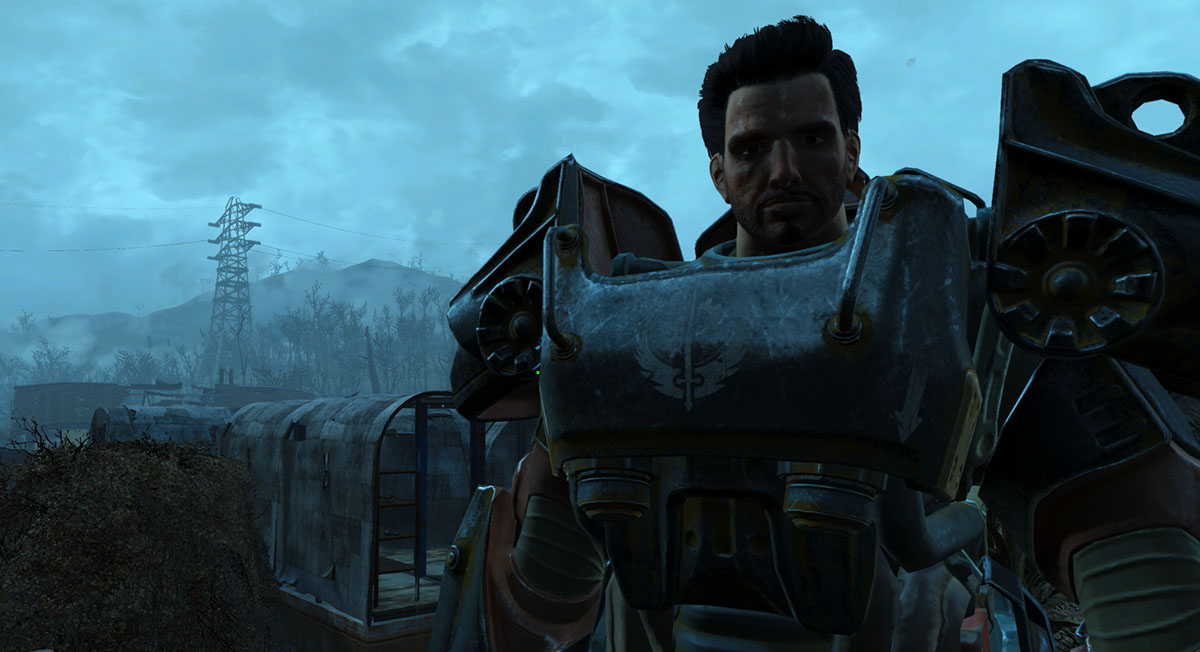

Following in the adorable footsteps of Double Fine's first XBLA/PSN title, Costume Quest, Stacking brings a similar charm and detail, this time to the puzzle-adventure genre. We were drawn in initially by its visually striking, Victorian-era silent movie meets shoebox diorama aesthetic, coupled with Double Fine's signature lighthearted humor. As we delved into the gameplay though, we were delighted to find the makings of a great puzzler – a simple, easy to understand mechanic that allows for a deceptive amount of creativity and variation. Its puzzles may be too simplistic at times, but its world is so fun to explore that the puzzles almost become secondary anyway.
You start as the smallest of stacking dolls, little Charlie Blackmore, and stack into progressively larger dolls by sneaking up behind them and jumping into their bodies (stacking from the front is terrible etiquette and it simply isn't done). Each doll has a unique ability – from sexy seduction to rancid farts to punching to hugging – and you must figure out a way to use various abilities to solve environmental puzzles and save your family from a life of forced labor. The controls are simple – Y/Triangle to stack into a larger doll (you can only stack into dolls one size larger than the largest doll in your current stack), B/Circle to unstack (i.e. remove the largest doll in your stack – you can unstack all the way down to Charlie by repeatedly hitting B), X/Square to talk, and A/X to use your outermost doll's ability.
Stacking's story begins in a train station, and Charlie must get the trains running so that he can save his brothers and sisters who've been kidnapped by the evil Baron and sent to his various establishments to do hard labor. Charlie's first destination is the Commodore Perry, the Baron's enormous pleasure cruise ship, where tiny Charles must do everything he can to cause enough mayhem aboard the ship that it will ultimately be forced to dock. From there he travels to a zeppelin high in the sky and ultimately to a luxury train, each time releasing his siblings and foiling the Baron's plans to use cheap child labor. There are only four stages, but each one is huge, with tons of areas to explore, dolls to find and so on. It's easy to plow through the entire game quickly if you solve the minimal amount of puzzles without slowing down to explore. If that's your gameplay style though, Stacking probably isn't for you.
As you progress, two abilities can be combined by using one and then unstacking to a smaller doll and using its ability on the larger doll – for example, you can light a flame with one doll and then unstack to a farting doll and fart on the flame to cause an explosion. Even with the power of synergy though, most of the puzzle solutions are extremely simplistic, and usually just involve finding the right doll for the job. If you're looking for the kind of satisfaction you get from solving complex puzzles that require a lot of planning and brain power, again, Stacking might fall short for you.
Solving the primary challenges to progress the plot is only part of the gameplay though, and we found we actually spent far more time exploring the environments and experimenting with different doll abilities. There's so much personality packed into each doll (which is amazing considering that they can't really emote the way regular character models can), and just watching dolls' reactions to other dolls' abilities can be a delightful distraction. We particularly enjoyed farting on babies, vomiting on the hoity-toity, and making dolls crap their pants in terror as a gigantic screaming clown from hell (sawdust crap really shoots out of their butts).
The distractions don't stop there. Each world has a cast of unique dolls to find and collect, some standalone and some that come in matching sets, and various dolls have "hi-jinks" goals that you can find by experimenting with their abilities (for example, you get a hi-jinks award for blinding other dolls' with a photographers flashbulb and so on). Challenges all have multiple solutions too, so you can redo them until you find all the possibilities (finding one is easy, finding them all is hard). From a strictly technical perspective, you could call a lot of these extras filler, because they do go far in padding out the play time. But does it matter if something could technically be considered filler when it's so fun? When a game focuses on collectibles it can often be a tedious misstep, but Stacking does it right – the journey is its own reward here, and it never feels like unnecessary padding.
As you'd expect from a Double Fine game, Stacking's humor doesn't disappoint. It has the same celebration of children-as-heroes that we loved in Costume Quest, but this time the subject matter is a bit darker, with a plot that revolves around child labor, including children being kidnapped and forced to toil in coal mines (one child doll's ability is a black lung cough that sprays soot on passersby). That said, it's the most light-hearted dark humor ever, and despite the children being the butt of the jokes, the tone is always adorable and never even remotely mean-spirited (that goes without saying given Stacking's pedigree, but just to be clear).
Stacking's design almost feels like atonement for the brutally obtuse puzzles of adventure games past, because the game's parameters are so crystal clear at all times. You may occasionally get stuck on a puzzle, but it will always be because of the puzzle itself rather than because of confusion over the gameplay mechanics. In that way, it feels like the antithesis of some of the adventure games that Tim Schafer worked on earlier in his career, like the The Secret of Monkey Island. The emphasis in Stacking is clearly on exploration, experimentation and discovery, rather than complex puzzles or random difficulty. If you love just messing around within an engaging world and you aren't merely single-mindedly driven toward a goal, Stacking will delight you. But if you're one of those impatient people who can't be bothered by anything other than the task at hand, there's a chance you'll be disappointed with its lack of difficulty and emphasis on collection and multiple solutions. Even if you are of the second group though, Stacking could very well win you over with its charming presentation.
Feb 8, 2011




 How to Change Volume of Individual Programs in Windows 10
How to Change Volume of Individual Programs in Windows 10 Mortal Kombat X Guide: How to Play Kano
Mortal Kombat X Guide: How to Play Kano Just Cause 3: How to Fix Logging in, FPS drops and Performance Issues
Just Cause 3: How to Fix Logging in, FPS drops and Performance Issues Fallout 4 Guide: How to Romance Paladin Danse
Fallout 4 Guide: How to Romance Paladin Danse Google's Best Apps of 2015, Facebook Adds Live Video... [Tech News Digest]
Google's Best Apps of 2015, Facebook Adds Live Video... [Tech News Digest]